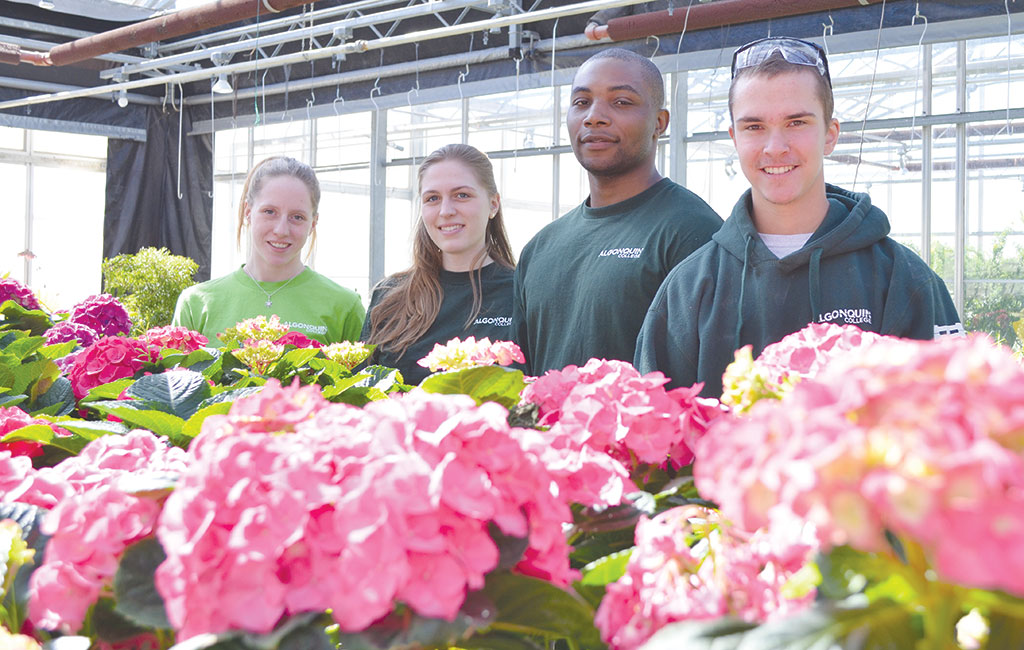By Elizabeth Mabie

The college’s horticulture program has partnered with the culinary arts program to provide a fresh supply of herbs. They have planted and are maintaining a herb garden for the express use of the culinary students to use for cooking.
Normally, the culinary programs get the excess herbs and edible foods from the garden, but the horticulture program approached them and asked them what kind of herbs they wanted to see grown this year. The addition of the herb garden is part of plans for the spring construction that include building a permanent duck pond in the courtyard by the registrar’s office and rebuilding their garden centre.
“We did a little bit of research as to what was feasible and what wasn’t,” says Steve Neumann, professor, “and that’s what we have gone forward with right now.”
What is produced from the garden goes to the culinary students and what the students don’t end up using goes to food banks.
“We consider our garden and nursery our living lab,” says coordinator and professor, Tommy Wingreen. “It is really for the students to learn, but with the maintenance, construction, and growing of plants in the nursery, of course the gardens are for everyone to enjoy.”
Students have been busy transplanting vegetables and plants that they started from seeds and are getting them ready for planting outside once the snow melts.
Although it has been buried in snow for months the Woodroffe campus has a garden that the staff and students from the horticultural industries program maintain it during the warmer seasons.
The garden is originally for the benefit of the students because they have to work in it, but students and people living in the area take advantage of the scenery.
“It’s not abnormal to see a limo pull up and have a bride and groom step out to take a few pictures in the garden,” said Neumann, “but ultimately the garden is for the experience of the students.”
The horticulture program is a two-year program, but goes 16 months straight through. They spend the spring, summer, and fall working outside maintaining the gardens. The class is divided in half: one group stays and works on campus while the other group works at their co-op placement. They spend 10 weeks doing each.
They get to experience the different parts of garden maintenance, such as lawn care, tending to the plants, and construction.
It hasn’t always been like this. The program recently underwent a makeover because the four-month absence caused the staff to hire students to stay and work the summer months outside. The new format is easier for students to get the experience they came to school for and put their learning into practice.
“Whatever other construction projects are going to be as they come along as the needs persist,” says Neumann. “Some of those will be the main construction projects at first.”


